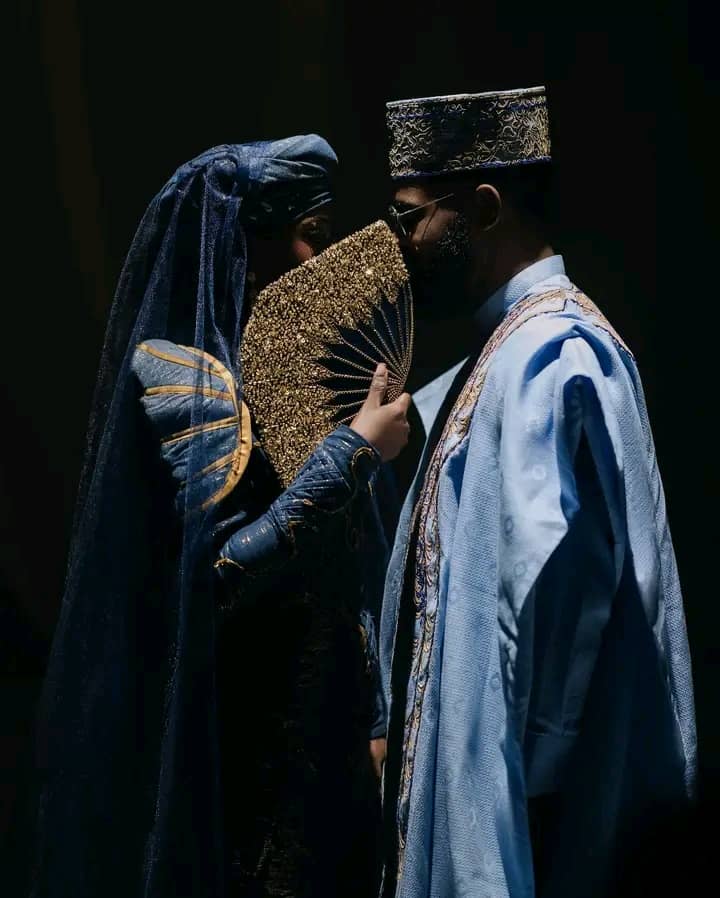By Sakariyah, Ridwanullah
The contrast could not be starker. Gallantly standing in front of a Toyota Corolla in the heart of Ikotun, Lagos, Moremi Omotosho, a 32-year-old secondary school teacher, confidently speaks of her decision to keep her maiden name as one of simple professional pragmatism. “My career was built on the Omotosho name. Why should I spend years and thousands of naira re-establishing my identity on my credentials?” she asks.
According to Moremi, her mother, Mrs. Abike Mustapha (née Adekunle), who lives in a rural Kwara community, views the matter differently. For Abike, swapping Adekunle for Mustapha four decades ago was an honour, a public proclamation of her status and her lineage’s absorption into her husband’s family. “It is what we do. It shows you are settled. When you retain your father’s name, it’s like you are only half-committed,” she insists, laying bare the generational tension at the heart of this enduring Nigerian custom.
This report, thus, offers a glimpse into why (career) Nigerian women change their surnames after marriage.
READ ALSO: NAOWA promotes women’s health, urges early breast cancer detection
Historical and Cultural Bedrock
The near-universal practice of Nigerian women adopting their husband’s surname is a complex overlay of imported laws and deeply entrenched indigenous customs. It is no news that the colonial legacy of the 1914 Marriage Ordinance, inherited from the British common law tradition, played a crucial role in this matter. Albeit, no existing Nigerian law, including the Marriage Act, legally mandates a woman to change her name, the social expectation was introduced during the colonial era, where a wife’s identity was historically subsumed under her husband’s.
This foreign tradition found fertile ground in the following Nigeria’s indigenous cultures:
Patrilineal Norms: In prominent ethnic groups like the Yoruba and Igbo, lineage is emphatically traced through the father, while this reinforces the idea that a woman’s children, and by extension, her primary identity, must belong unequivocally to her husband’s Aba (Igbo) or Idile (Yoruba).
Islamic Influence: In northern Nigeria, Islamic customs, which often prohibit the change of a woman’s lineage name for the sake of preserving her identity and inheritance rights, stand in contrast to the received Western tradition. Yet, many women still socially adopt their husband’s name for ease of recognition and conformity. This, one can say, is a way of bypassing the religious nuance.
A 2023 report on gender roles by the Nigerian Institute of Social and Economic Research (NISER) highlighted how these entrenched norms continue to influence young people’s attitudes, with over 60% of respondents in one regional study believing that men should have more decision-making power which pinpoints a sentiment that underlies the patriarchal concept of a unified family surname under the husband.
Contemporary Pressures and the Fight for Identity
Despite the lack of a legal requirement, social pressure, family expectations, and bureaucratic friction maintain the tradition’s strength. Field reporting in Abuja markets shows that for many women, the change is simply about acceptance. “It avoids so many explanations,” says Mrs Olagunju. “If my children and I do not bear the same name, the school, the bank, even the landlord will ask questions.” The need to demonstrate “unity and oneness” in marriage often supersedes individual identity.
This conformity is profoundly reflected in the public sphere. Societal support for established marital practices remains overwhelmingly strong, a sentiment reinforced by broad-based surveys that track adherence to traditional gender roles. Although precise statistics are lacking, sociological observations suggest that a significant majority of Nigerian women (perhaps over three-quarters) adopt their husband’s surname, motivated by convenience, the desire for family unity, and the pervasive fear of social stigma.
This social norm is often institutionalized: government agencies such as the Nigeria Immigration Service (NIS) and the National Identity Management Commission (NIMC) require married women who choose to change their names to navigate bureaucratic procedures involving affidavits and newspaper publications before obtaining new documents. Legal practitioners and gender rights advocates frequently argue that this administrative insistence on name modification, a practice not mandated by the Nigerian Marriage Act, effectively reinforces a quasi-compulsory system that conflicts with women’s fundamental rights to self-determination.
For professional women, the challenge is quite distinct. Feminist scholars like Dr. Amina Mama highlighted the retention of a maiden name as an act of feminist resistance, a way to safeguard the professional capital built over years. The choice of Nigerian celebrities, such as musician Tiwa Savage, to maintain their professional names has sparked vigorous social media discourse, with fans debating whether the move is a sign of disrespect or a powerful assertion of a woman’s independence and brand.
Emerging Trends and Policy Horizons
Globally, options exist that offer a middle ground. In countries like Spain, a dual-surname system mandates that children carry both the father’s and mother’s surnames, with a view to preserving both lineages. This model is beginning to inspire urban Nigerian millennials, who are increasingly exploring hyphenation, such as Funke Abiodun-Adekunle, or retaining their maiden name professionally while using the husband’s socially.
The call for legal reform is mounting. Legal experts support petitions to the National Assembly to explicitly clarify the legal non-obligation and mandate government institutions to recognize a woman’s choice without bureaucratic hurdles.
READ ALSO: Australian women cricketers harassed in Indore, suspect arrested
On that note, it suffices to say that the debate over a surname intersects powerfully with broader women’s rights and economic empowerment in a post-#EndSARS Nigeria. As women gain greater financial autonomy and demand more equitable representation, the right to choose their identity becomes a significant measure of progress. Ensuring a choice-based reform, where the burden of proof and the threat of stigma are removed from the woman who chooses to retain her name, is crucial for recognizing her autonomy and standing in her own right.



